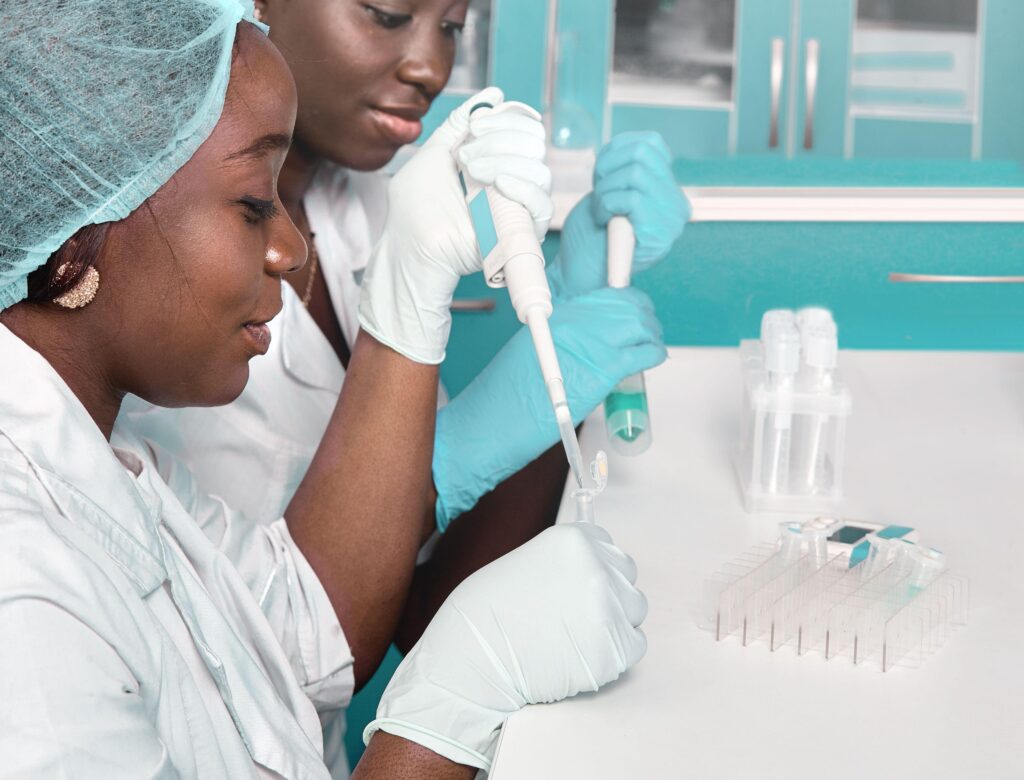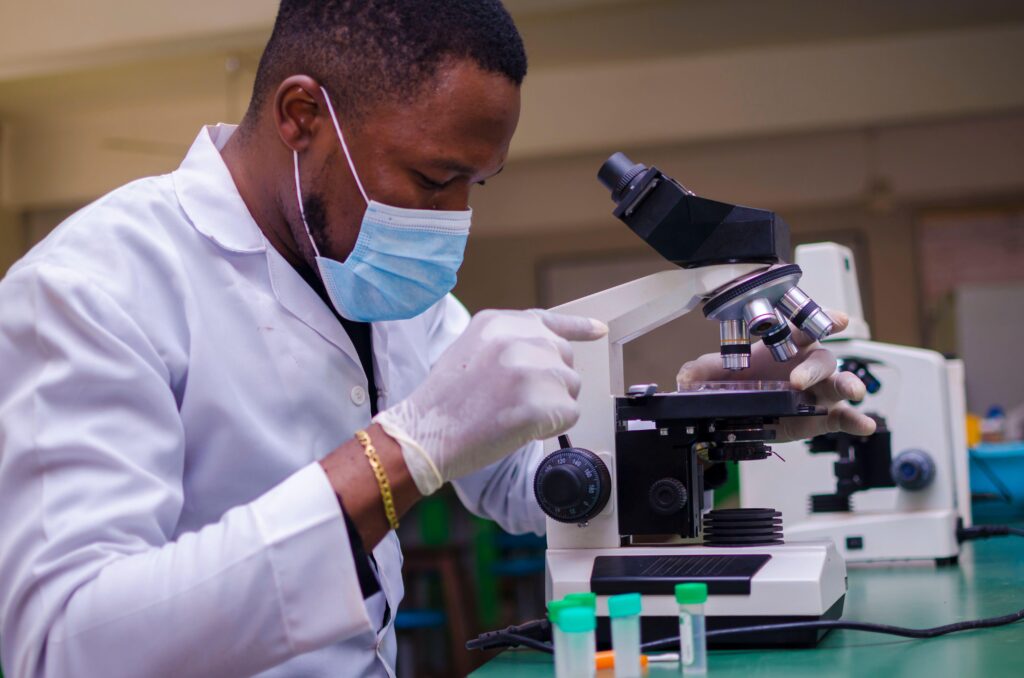
Open Research Africa case study: H3Africa governance framework for genomics research and biobanking in Africa
The Human Heredity and Health in Africa (H3Africa) consortium facilitates fundamental research into diseases on the African continent while also developing infrastructure, resources, training, and ethical guidelines to support a sustainable African research enterprise – led by African scientists, for the African people. Open Research Africa, formerly the AAS ( African Academy of Sciences) Open Research, is a joint initiative of the Science for Africa (SFA) Foundation and F1000 that provides African research organizations with a dedicated space to share and promote all of their research outputs rapidly and transparently via a bespoke publishing portal.
For H3Africa, the development of the Framework for Best Practice for Genomics Research and Biobanking in Africa, published on Open Research Africa, was a critical project aimed at providing ethical underpinning for, and public confidence in, genomics research and biobanking in Africa.
Funded by the African Academy of Sciences, the National Institutes of Health, and Wellcome, the Framework was published on the AAS Open Research Platform (now Open Research Africa), consciously making the Framework accessible without charge to all African researchers and publics as quickly as possible.
Following publication on Open Research Africa, the Framework fed into, influenced, and has been cited by:
- World Economic Forum (WEF) framework for genomic data policy
- National health research ethics guidelines for Ethiopia, Uganda, and South Africa
- Over 30 publications on genomics and biobanking research.

This case study is based on interviews with Mr Aminu Yakubu, VP Research Planning and Ethics, 54gene and Dr Jantina de Vries, Associate Professor in Bioethics, the Department of Medicine, University of Cape Town, two of the authors of the governance Framework who both served as Chair of the H3Africa Ethics Working Group.
Tackling ‘parachute research’ and optimizing precision science: a Framework ‘developed by Africans for Africa’
From the outset, the Framework aimed to support policy and practice across the continent that would enable Africans to reap the benefits of genomics research while at the same time protecting and futureproofing against exploitation of African populations and researchers. Dr Jantina de Vries, who led the development of the Framework, described the deep discomfort that many ethics committees across Africa had about the collection of biospecimens, and genetic data given “a history of exploitative medical research on the continent.” Another Framework author, Mr Aminu Yakubu, pointed out that the history of such ‘parachute research’ is very near history,
“People came and took samples from the Ebola patients in some African countries that were affected then never paid heed to any regulatory framework in any of those countries […] even as late as 2015 people were still coming to Africa to do research without recourse to any regulatory framework.”
The importance of the equitable sharing of genomic data to ensure fair and sustainable re-use, meant there is close alignment between H3Africa’s Ethics Working Group and other H3Africa groups working on data sharing. At the forefront of this shared work were issues such as informed consent. The need to engage with ethics committees and regulators across the continent was also recognized, meeting initially with over 80 ethics committee members nominated by H3Africa researchers. These pan-African discussions built to a meeting with national health research ethics councils and national policymakers, where, as Dr de Vries described, “that meeting ended by […] one of the participants, who was a policymaker in Botswana, standing up and saying, actually what we need is a framework.”
The subsequent drafting of the Framework kept in sight the need for continued engagement with research and policy communities across Africa while keeping focus on H3Africa’s end goal of fostering genomics research – and the precision science and medicine it enables – to benefit African societies. “One thing that is unique about that document”, as Mr Yakubu described it, “is that it was a document that was developed by Africans for Africa.”
Creating the Framework and open research publishing: equity in action for African researchers and African people
Collaboration, inclusion, transparency, and openness – the shared principles that inform open research – informed the drafting and publication of the Framework: from circulating the draft for comment to the scholarly community (including organisations such as the Global Alliance for Genomics Health and MalariaGEN) to going through paragraph and sentence detail with invited policy makers, national health researchers, and Ethics Councils members from across Africa in the Dakar meeting. It was only after a thorough review of the process that the Framework was released through the H3Africa Consortium and published.
Speed and equity were decisive factors in publishing the Framework as open research. Dr de Vries described Open Research Africa’s “no lag” publication and the speed by which the text can be read and used by others being “really important for us.” The second consideration in publishing openly was to make the Framework accessible to all, ensuring, in Mr Yakubu’s words, “that it was not published on a platform that in any way inhibits any African in any part of the world from accessing the document.” Institutions or individuals were not blocked from accessing the Framework if they could not afford subscriptions and for Dr de Vries and the H3Africa team, this openness was a driver for change:
“This model of open research is obviously important if what you want to do is affect change in the South or in Africa and we want this document to be generally available to all ethics committee members in all institutions across the continent”.
For H3Africa, equity was not just about access for African researchers but also recognition of African researchers. Researchers in higher-income countries where biospecimens from Africa may be eventually stored, have an advantage over their African counterparts because of the resources available to them. As Mr Yakubu explained, these researchers may “be able to utilize that data 1000 times more effectively than their counterparts in Africa. A lot of times that then happens without carrying the African collaborators along. There are a lot of instances when research studies come to African countries with a clearly defined research agenda and only looking for African collaborators to help them collect the data or simply to implement their research but not to contribute intellectually.”

A central tenet of F1000’s open research model is recognition of, and engagement with, all researchers and research contributions, from data notes to ethical frameworks. This two-way principle, whereby research is accessible and researchers can build on all research outputs (whether their own or others,) is seen in the real-world application and impact of H3Africa’s Framework, from WEF’s genomic data policy to the smaller research projects targeting specific diseases. Mr Yakubu reflected on this impact of H3Africa and open research in Africa, considering new developments, such as commercial genomics:
“There’s a huge world of precision medicine that people have started to talk about that has been enabled to a greater extent by the work that was facilitated by H3Africa. There, of course, have been other initiatives that came after but the work that H3Africa has done has been seminal. Like I said, we’re just beginning to scratch the surface of conducting genomics research in Africa and we have seen the proliferation of the small kind of research studies, with people coming to institutions saying they want to understand the genetic underpinnings of different kind of diseases. There’s a huge discussion now about commercialization, which H3Africa itself is beginning to get its head around and provide some guidance on. And I think this is why having governance mechanisms that anticipate these things and that are able to provide guidance on how researchers can navigate some of these developments and opportunities ethically into different African countries remains as important as ever”.
Learn more about F1000’s open research impact by reading Health Open Research case study: Marie Curie evidence-based end-of-life care campaigns
Read more about H3 Africa, Biobanking and Genomics here
